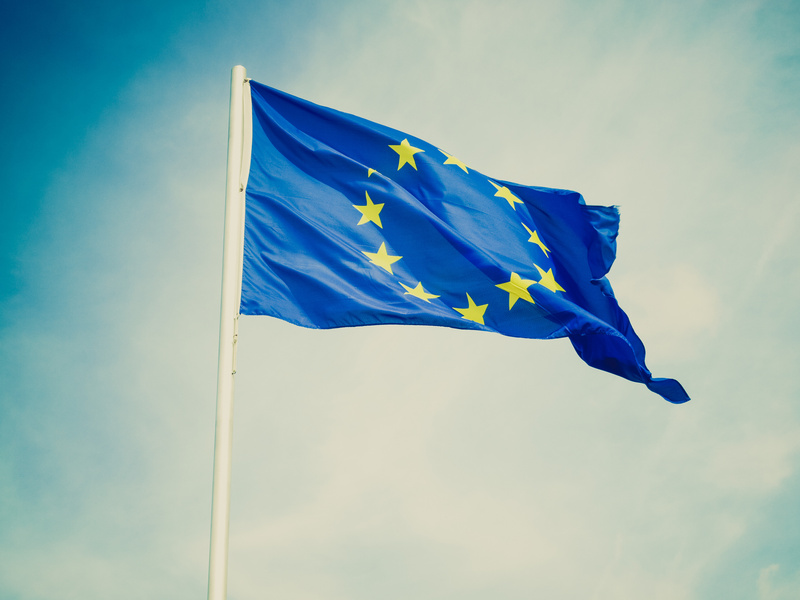A European identity?
Given the differences in Europe on negotiation, money, economics, identity, worldview, Csilla wonders about possible synergies.

The question of a European identity is a recurring subject which continues to generate a lot of ink. In 2020, we published an article on the subject. Is it still relevant? We invite you to (re)discover it and give us your opinion on the Akteos - Intercultural Insights discussion group.
Csilla offers us a follow-up to her article Europe revisited and wonders if European countries can succeed in building a European identity.
After highlighting the differences between Western Europe and Central Europe on negotiation, money, the economy, identity, their beliefs and their vision of the world, she questions possible synergies. What are their complementarities? What can each party bring to the other?
The richness of cultural differences
Two approaches to negotiation
The art of negotiating: the value of the product
For Western peoples, these “sea peoples”, explorers and traders, negotiation is more human-oriented. It's an art that has its rules: partners appreciate each other, seduce each other, value each other, approach each other, move away to create a relationship with subtlety, know-how and a lot of interpersonal skills.
The result of the negotiation for them is based more on the history woven together and on the links forged over time between the partners than on obtaining the cheapest price.
Going through ups and downs, through disagreements, partners must demonstrate great emotional intelligence and an ability to bounce back, to not give up, to never take everything for granted. For them, a negotiation is never definitively closed.
Their strength lies in long-term tenacity and a keen understanding of the surprising facets of human nature.
Furthermore, the majority of books that offer negotiation techniques come from the West and speak to Westerners.
Negotiation at face value: cost price
In Central Europe and among the “peoples of the land”, negotiation is more oriented towards the product. What matters to them is “dry land”, the price of the raw material, the fair price of the merchant's added value, the cost price.
When negotiating with them, you have to know how to be precise with the figures, conclude quickly and have a clear message in order to generate real love and arouse their trust. Otherwise, they could quickly abandon the business relationship without follow-up and without regret.
If, for example, they get a much lower price after negotiating, they may think there was deception from the start. It is better to give them the right price straight away, without varying it and without trying to create a story.
The human energy invested in a negotiation is a significant cost for them, so they have a preference for efficiency, precision, intuition and love at first sight. They will perpetuate commercial partnerships which do not tire them unnecessarily by the lack of rapid results.
Their strength lies in their ability to move forward quickly and in their "reality principle" taking into account the demands of the real world and the material consequences of each person's actions.
The complementarity of the two approaches
The analysis of the differences between "Europeans of the seas and the lands" in terms of negotiation cultures sheds light on their priorities, misunderstandings, sometimes on their conflicts, including political ones.
For the moment, the parties are convinced that they are only right against each other and see the qualities of the others more as faults.
The intercultural perspective precisely proposes a modification of this negative perspective so that difference can be seen as an additional richness, as a complementarity to be integrated.
The concertation of differences in terms of negotiation styles would lead Europeans to create a winning synergistic effect both economically and from the point of view of the construction of European identity.
The relationship with money: focus on Central Europe
Negotiation is linked to the relationship with money. Traditionally, in Central Europe, money is something immutable that we accumulate or capitalize on in real estate without particularly trying to make it grow.
Ambivalence towards money
Today, things have changed. Central Europeans travel and have tasted liberalism. Some quickly understood the dynamics of money and others pursue the logic of accumulation. We also find two attitudes towards money among them:
- A more discreet attitude among Poles, Czechs, Slovaks, Hungarians, Slovenes;
- A slightly more conspicuous attitude among the Romanians, the Ukrainians, the Russians.
Accumulation logic
Here is an anecdote which illustrates the logic of accumulation and the relationship to money of people in Central Europe.
A man, seeing bricks at a surprisingly low price, bought enough to build a house and stacked them in his garden where they remained for years. When asked what he is going to do with them, he replies that he is not going to build a house but that he is going to sell them one day. He only bought them because they were cheap!
What emerges is another ambivalence towards money: selling is painful for them because it requires communication and relational subtleties which bore them. However, there are skilled buyers within this group who manage to obtain goods at very low prices.
Opposition or complementarity?
Due to its history and geography, each part of Europe has developed a relationship with money and different skills. Europeans are not so easily interchangeable, but they are wonderfully complementary. There is nevertheless a lack of understanding between them which must be resolved if political Europe is to succeed.
The inhabitants of Central Europe were few in number, without money, without commercial know-how and they survived for millennia thanks to their land. Today they are trying to learn to trade and exchange, but only to a certain limit and certainly not at the cost of their inner life or their identity.
For them, the meaning of life is not to keep the economy running. They live to preserve life, the body, the house, the nation, nature, the planet, peace, not only individual but also collective freedoms.
On the other hand, Westerners think that the people of Central Europe are narrow-minded and don't see the big picture, that this survival reflex is a far-right reaction for them.
How to reconcile them?
If the Europe of the seas knows how to turn money and produce wealth, the Europe of identity knows how to preserve it with its instinct of conservation and survival. Isn't there an opportunity to bring into play synergies rather than pitting one against the other?
In Polish, Hungarian, Czech, Slovak, Slovene, Serbian and Croatian villages, people have organized themselves over the centuries to collect waste and plastics from rivers, lakes and forests without help from states.
There is a reflex to preserve the biosphere in these communities. Nature protection is an interesting example and we could find many others, to make use of complementarities and build European synergy.
